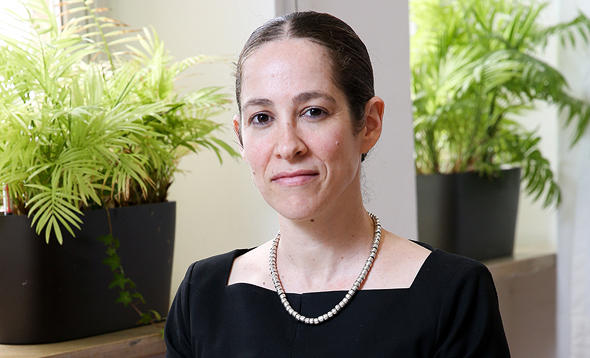Israel-UAE trade potential is north of $500 million, says Israeli chief economist
Shira Greenberg, the chief economist at the Israeli Ministry of Finance, spoke at Calcalist’s online conference on Israeli exports during the Covid-19 era
Greenberg spoke with Calcalist reporter Omri Milman as part of Calcalist’s online conference on Israeli exports during the coronavirus (Covid-19) era.
 Shira Greenberg. Photo: Alex Kolomoiski
Shira Greenberg. Photo: Alex Kolomoiski “We are still crunching the numbers and we will publish them in the next few days,” Greenberg said, adding that the potential trade between Israel and the UAE exceeds a previous estimate of $500 million by the Israeli Ministry of Economy.
- Israeli and UAE Techstars leaders excited by opportunities new deal offers
- “UAE-Israel agreement can be a bridge to normalizing ties with Saudi Arabia”
- How did Israelis secretly build up the UAE’s military capabilities and why is Teva in trouble?
“Effectively, some companies are benefiting from the crisis,” Greenberg said, naming the accelerated adoption of technologies and remote work as a possible cause. It is important to distinguish between services and goods because the traditional industry did suffer a major blow, she added.
According to Greenberg, the transition towards services started long before Covid-19 and is happening in every developed country in the world. “In Israel, it is happening in full force because of its relative advantage in the tech industry,” she said. About half of Israel’s exports are services and over 50% of them are tech exports, she said.
In addition, Greenberg said, a real revaluation of the shekel, which took place in the decade before Covid-19, significantly reduced the Israeli industry’s ability to compete. The Israeli government has taken steps to reduce regulation to make the local industry more competitive, she added.
- Covid-19 is more an opportunity than a crisis, says Netafim CEO
- Israel must double down on exports amid Covid-19 crisis, urges export institute chairman
- Israel is in a great position to capitalize on the rapid rise of medtech, says veteran investor
“We expect the second half of the year, assuming there won’t be a second massive pandemic wave, to bring a swift recovery for Israeli exports as well,” she said.
Referring to criticism claiming exporters receive benefits at the expense of the local industry, Greenberg said the state attempts to help all companies regardless of whether they export to other countries or not. Tax benefits for exporters are in accordance with global taxation policies and the OECD, she said.



